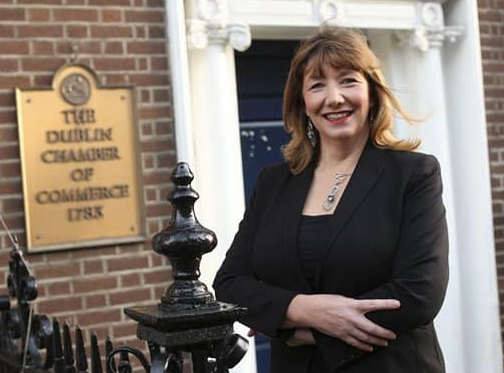Public Health England (PHE) launches new ‘Be Clear on Cancer’ campaign in the West Midlands to highlight blood in pee as a key symptom of bladder and kidney cancers. The campaign will encourage everyone to ‘look before they flush’ and visit their GP without delay if they notice blood in their pee, even if it’s just once.
A new survey reveals that only 19% of adults aged 50 and over (those most at risk of these cancers) in the West Midlands region say they check the colour of their pee every time they go to the toilet.1 If people don’t look before they flush, they may not notice blood in their pee.
A new short film featuring TV doctor, Dr Dawn Harper, is being released as part of the campaign. The film shows what to look out for as the colour of blood in your pee can vary – from very diluted, to bright red or even dark brown, like the colour of weak black tea. Blood in pee is a symptom in almost two thirds (64%) of all bladder cancers and around a fifth (18%) of kidney cancers.
Dr Lola Abudu, Director of Health and Wellbeing for Public Health England (PHE) in the West Midlands, said: “Blood in pee is a major symptom of both bladder and kidney cancers, so we’re asking people to ‘look before you flush’ the toilet. Even if you notice blood in your pee just the once, you should tell your doctor straight away. The chances are it’s nothing serious, but bladder and kidney cancers are more treatable if they are found early. Other potential symptoms to look out for are pains that don’t go away, either in the tummy or the side below the ribs; weight loss, pain when peeing and cystitis – a urinary tract infection that can recur after treatment. If you have any of these symptoms and they persist, you should definitely visit your doctor, and don’t worry that you’re wasting their time, because going to the GP could save your life.”
Mr Adel Makar, consultant urologist with Worcestershire Acute Hospitals NHS Trust, said: “In the West Midlands, around 2,000 people are diagnosed annually with kidney and bladder cancer, with an average of 880 people in the region losing their lives each year. People over 50 are most at risk from these cancers, but only 19% of people over 50 in the West Midlands check their pee every time they go to the toilet. If you ‘look before you flush’ to check for blood in your pee, and talk to your GP immediately, even if you see blood just the once, then you could catch kidney or bladder cancer in the early stages when it is most treatable.”
Karen Sabin, 53, is a nursing assistant practioner and Kidney Cancer UK Ambassador from Nuneaton, she said: “My kidney cancer was caught early, after I noticed a pain in my side and slightly darkened urine, and visited my GP to discuss my symptoms. I had surgery to remove the kidney and needed no further treatment. It’s so important that everyone knows that blood in pee could be a sign of cancer, and to go and see your doctor as soon as possible, even if you only see it once. If it is cancer, early diagnosis means it’s more treatable.”
Blood might not appear every time, so it is important that people seek medical help even if they notice it just once. Worryingly, around 49% of those surveyed in the West Midlands said they would not seek medical advice if they saw blood in their pee just once,1 however, 46% of those surveyed said they would wait and see if it happened again, potentially putting off a vital diagnosis.1
When asked why they would not go to the GP straight away if they noticed blood in their pee, some concerning delays for seeking help were uncovered; 18% in the West Midlands say they would be worried about wasting the GP’s time and 21% would only book an appointment sooner if they had other symptoms.1
Latest figures show that every year in England around 19,100 people are diagnosed with bladder or kidney cancer and sadly, around 8,000 people die from these diseases. Early diagnosis is critical; 84% of those diagnosed with kidney cancer and 77% of those diagnosed with bladder cancer at the earliest stage (stage 1) will live for at least five years.4,5,† At a late stage (stage 4), this drops to 10% and 9% respectively.4,5,
Dr Dawn Harper, TV Doctor and GP, said: “I’m urging people to be vigilant to changes in their body and to check their pee. I hear all too often about people who have delayed seeking medical advice if they have worrying symptoms – like blood in pee – because they are afraid of what the doctor might find or what the treatment might be. If you do notice blood in your pee, it’s probably nothing serious, but it’s always worth checking with a health professional, you won’t be wasting their time. It’s vital that people don’t put off getting help; if it is cancer, early diagnosis saves lives.”
Professor Chris Harrison, National Clinical Director (Cancer), NHS England, said: “The earlier people are diagnosed, the better their chances, which is why it is vital people understand what to look out for and when to visit the GP. This campaign has the important aim of helping raise awareness of the signs and symptoms of bladder and kidney cancer and encouraging people to visit their GP after seeing blood in their pee.”
The ‘Be Clear on Cancer’ ‘Blood in Pee’ campaign runs until 23 September and includes advertising on TV, radio and in washrooms and online. For further information about the signs and symptoms of bladder and kidney cancer, search ‘Be Clear on Cancer’.
















